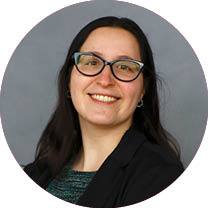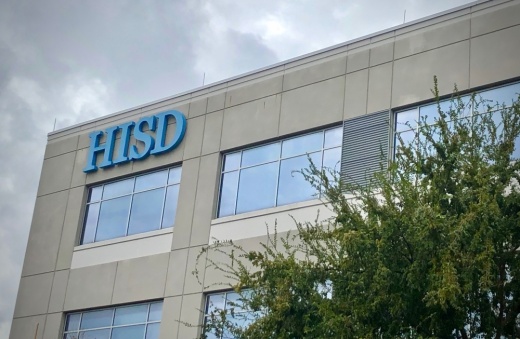Around 72% of HISD students from grades 3-8 approach learning standards for reading their grade level, while 48% meet the requirements, according to data from the Texas Education Agency from the State of Texas Assessments of Academic Readiness, or STAAR tests, for the 2021-22 school year.
“I think where we missed the mark sometimes is understanding how to approach this method with our particular students, because students learn different[ly],” said Wendy Tilford, an academic advisor and owner of a Houston-area Huntington Learning Center location, which offers tutoring services and test prep.
During the 2022-23 school year, one of the new ways the city of Houston began engaging students to read was through a newly introduced program called Reading With a Rapper, which was founded by Jarren Small. The program launched at seven HISD schools in the spring, catering to grades 3-12. Small said the idea came about in 2018 after he noticed how literacy “wasn’t being talked about” in Houston.
“That’s when we decided to actually create Reading With a Rapper, where our goal is to teach kids ... how to read and write through socially conscious lyrics, content and technology,” he said.
Appealing to different learning styles is just one piece of the puzzle, Tilford said.
“I often tell my families that learning at school for eight hours is one thing, but applying it into practicing at home during the weekends with our family and friends is another thing,” Tilford said. “That’s where a student learns and will master these particular skills.”
Houston also established the Mayor’s Office of Adult Literacy in 2019. The office is the first of its kind in the nation, Director Federico Salas-Isnardi said.
“If we don’t intervene and don’t work together, your third grader having trouble reading today will be an adult with low literacy 10 years from now,” he said.
In 2021, the office released the Blueprint for Literacy Innovation, a 15-year plan to target low literacy levels in the city. Elements of the plan include addressing inequities in digital technology and advocating for legislation in support of adult learners, among others.
Miles, who was appointed superintendent of HISD in June as a part of the TEA’s intervention into the district, said he has plans to address literacy through a multi-pronged approach. In addition to targeting the achievement gap, Miles also plans to alter teacher salaries to a performance-based model, which he said will ultimately lead to language arts teachers earning more for their “value,” according to a July 20 HISD presentation.
Another part of Miles’s plan includes implementing a “science of reading” curriculum, which he said works on word recognition, decoding and phonological awareness.
“One of the things—besides finding really effective teachers [and] coaching them well—is providing the right curriculum,” Miles said. “We’re going to not just provide the curriculum, but also good lesson plans so that we don’t leave it to chance.”
However, Miles has also sparked controversy with his plans to remove librarians and media specialists from certain HISD schools in lower income neighborhoods, which Miles said is to free up more funding for teacher salaries. The move has prompted some teachers and librarians to speak out about what they said will ultimately have negative consequences for student literacy, including during a read-in protest that took place before an Aug. 10 board meeting.
In his presentation, Miles noted in 2003 18% of fourth graders and 14% of eighth graders in HISD were reading at or above grade level, compared to 19% of fourth graders and 18% of eighth graders in 2022, according to the Nation’s Report Card, released annually by the U.S. Department of Education. The slow improvement was one of the reasons Miles said the district needs overhaul.
But the state of Texas isn’t much better overall. Only 30% of fourth graders and 23% of eighth graders across the state were reading at or above grade level in 2022, per the Nation’s Report Card.
Tilford said she believes more can be done to improve literacy in Houston and in the state.
•“These skills don’t fix themselves,” she said. “They just build over time.”





